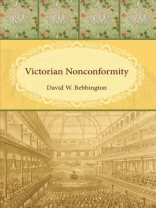The Nonconformists of England and Wales, the Protestants outside the Church of England, were particularly numerous in the Victorian years. From being a small minority in the eighteenth century, they had increased to represent nearly half the worshipping nation by the middle years of the nineteenth century. These Methodists, Congregationalists, Baptists, Quakers, Unitarians, and others helped shape society and made their mark in politics. This book explains the main characteristics of each denomination and examines the circumstances that enabled them to grow. It evaluates the main academic hypothesis about their role and points to signs of their subsequent decline in the twentieth century. Here is a succinct account of an important dimension of the Christian past in Britain.
Over de auteur
David Bebbington has served since 1976 at the University of Stirling, where he is Professor of History. His books include Evangelicalism in Modern Britain: A History from the 1730s to the 1980s (1989), The Mind of Gladstone: Religion, Homer and Politics (2004) and The Dominance of Evangelicalism: The Age of Spurgeon and Moody (2005).







![Hoes van Brian Schrag & Julisa Rowe: Community Arts for God's Purposes [Chinese] 貼近神心意的社群藝術 Hoes van Brian Schrag & Julisa Rowe: Community Arts for God's Purposes [Chinese] 貼近神心意的社群藝術](https://static.worldofdigitals.com/thumb_webp/740/9781645083740.webp)




